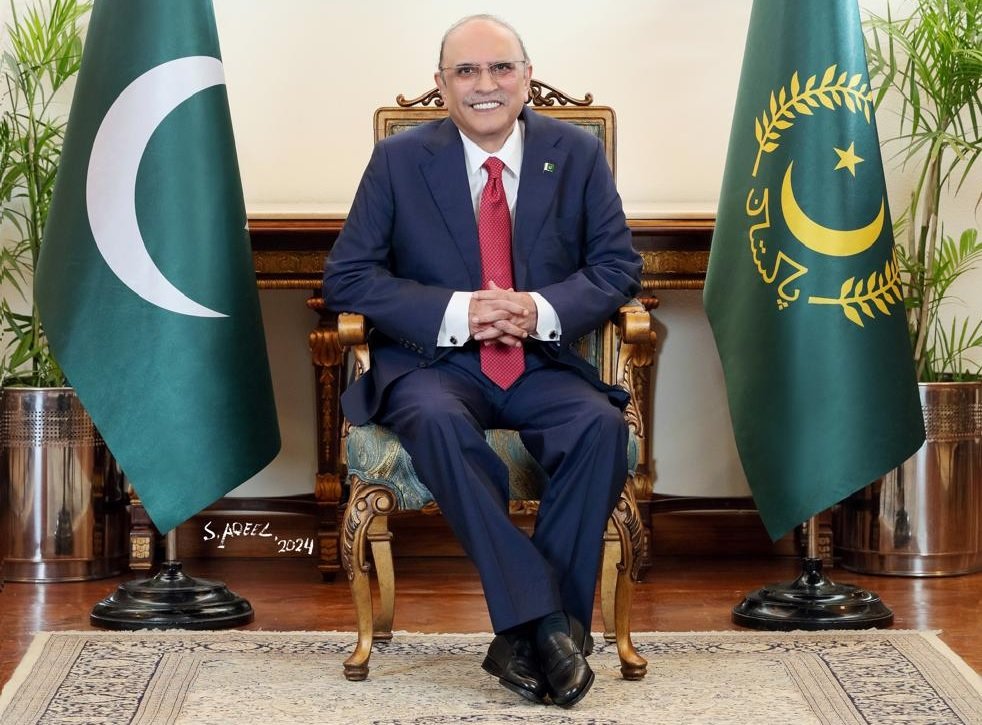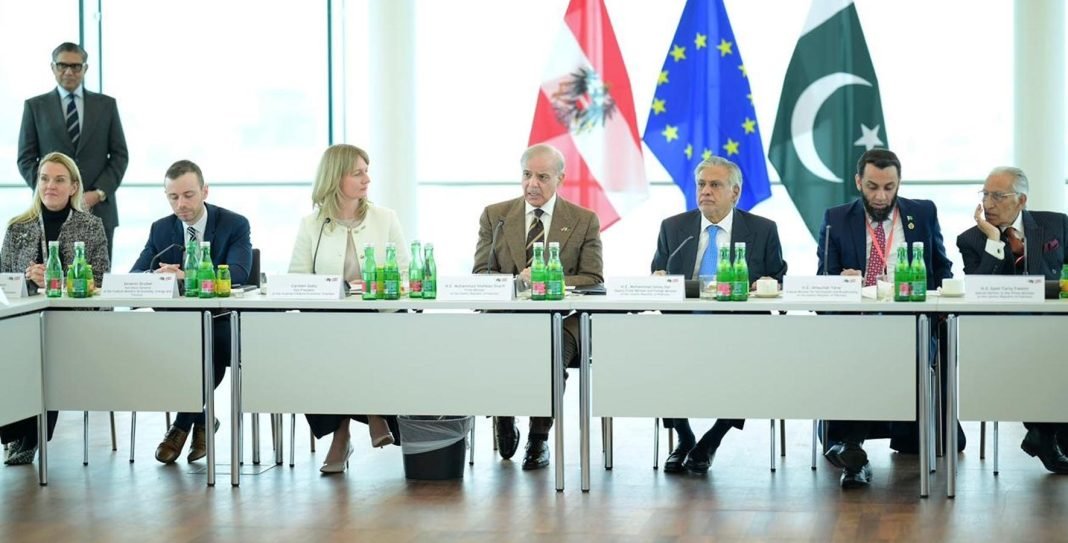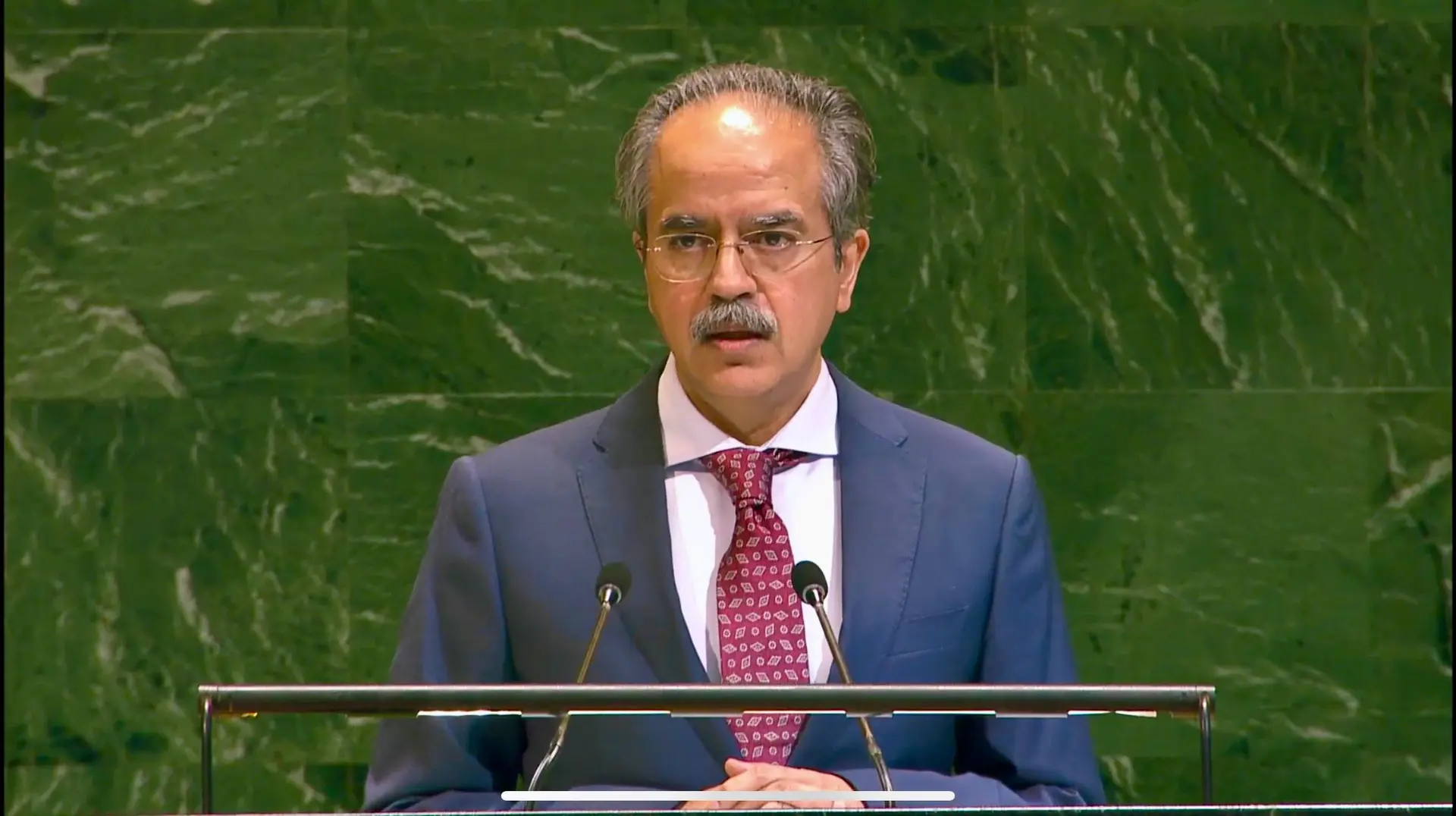Changqing, December 20, 2024 – The Europe Today: Today, International Conference on “3rd Academic Symposium on Global Security Governance” hosted by the Baize Institute for Strategic Studies at Southwest University of Political Science and Law in Changqing District, China
The conference commenced with a warm welcome from Prof. Ma Fang, Chairman, Baize Institute for Strategic Studies at Southwest University of Political Science and Law in Changqing District, China. Prof. Ma Fang expressed heartfelt gratitude to the distinguished guests and experts from China, Pakistan acknowledging their crucial role in facilitating discussions that foster international collaboration. Prof. Hu Ergui, Vice President, Southwest University of Political Science and Law in Changqing District, China emphasized that dialogues like these are essential for strengthening ties across borders and enhancing mutual understanding in an increasingly interconnected world.
Mr. Khalid Taimur Akram, Executive Director, Pakistan Research Center for a Community with Shared Future (PRCCSF), Islamabad gave a keynote speech on “Advancing Multilateral Strategies for Global Security Governance” in Section-II of the forum themed, “Global Security Initiative and Win-Win Cooperation”. In his speech, he underscored the significance of collaborative efforts in addressing global security challenges.
The conference featured several prominent speakers who presented on a range of important topics:
- Prof. Fan Youngpeng, from Fudan University, Shanghai, China delivered speech on “The News Fudel Era and Global Security Challenges”.
- Prof. Tu Huazhong, from Southwest University of Political Science and Law in Changqing District, China gave a speech on “Future Development Opportunities and the Roles of Organization and Individuals in China from a Constructive Perspective”.
- Prof. Zhou Rong from Renmin University of China gave a speech on “The New Forms of Terrorism and the Protection of China’s Overseas Interests”.
- Prof. Xie Guiping form Zhejiang University in Hangzhou, Zhejiang, China gave a speech on “The threat of the Burmese civil war instigated by the United States of China’s interests in Burma and stability of the southwestern border and suggestions for countermeasures”.
- Prof. Zhu Yin, from Southwest University of Political Science and Law in Changqing District, China presented speech on “The News US Government AI Technology and Industry Chain National Security Strategy Outlook: Major Challenges for China”.
- Prof. Lu Lingyu from Yunnan University in Kunming, Yunnan, China gave a speech on “How does India control South Asia? An analysis based on Structural power”.
The theme of Section I was “Global Security Initiative and Future Prospects,” chaired by Prof. Ni Chunle from the Baize Institute for Strategic Studies. Among the speakers was Mr. Jonston Paul Andrew, a Senior Expert from Australia, who presented online on “Assad’s Fall from Power in Syria: Threats and Implications for China.”
The speakers and topic of speech of this section included:
- Mr. Jonston Paul Andrew, Senior Expert of Australia presented online speech on “Assad’s fall form power in Syria: Threats and implications for China”
- Prof. Li Xinyi from Southwest University of Political Science and Law in Changqing District, China presented speech on Mechanism for the Role of Intelligence in National Security Decision-Making
- Dr. Sundaram Rajasimman from Sichuan International Studies University in in Chongqing District, China delivered speech on “The Structural of Deterrence and Global Security”
- Associate Professor Shi Feng, Sichuan Police College, China gave a speech on The Art of the Deal: Analysis of the Trends in Tibet-related Policies of the Post-Trump Administration
- Prof. Liu Yin from Southwest University of Political Science and Law in Changqing District, China presented speech on The situation and governance of religious extremism along the Belt and Road
- Associate Researcher Makkavccva Svetlana from Sun Yat-sen University in Guangzhou, Guangdong, China gave a speech on The Importance of Black Sea in Russian Geostrategy
- Associate Researcher Cao Qiang Svetlana from Nanjing University in Jiangsu, China presented speech on The Evalution of U.S. Cyberspace Strategy: Characteristics and Trends
- Associate Professor Wu Yu from Southwest University of Political Science and Law in Changqing District, China presented speech on The Discourse Competition of International Order Transformation from the Perspective of Exploring Certainty in the Era of Uncertainty
- Associate Professor An Dewan from Sichuan Normal University in Chengdu, Sichuan, China presented speech on “Is the two-tier game still effective?” Economic security strategies in the global south under the condition of weaponized Interdependence
- Associate Professor Rami Khalil from Sichuan International Studies University in in Chongqing District, China presented speech on Collaborative Security: Building Alliances in Fragmented World
An open discussion followed Section I, addressing various dimensions raised during the presentations.
The theme of Section II was “Global Security Initiative and Win-Win Cooperation,” chaired by Prof. Liu Yin from the Baize Institute for Strategic Studies.
The speakers and topic of speech of this section included:
- Mr. Khalil Shahid, PhD Candidate from Institute of Global Studies, Shanghai, China presented speech on Climate Change and global Governance: A Case Study of Gilgit-Baltistan, Pakistan
- Associate Professor Wang Chong from Southwest University of Political Science and Law in Changqing District, China presented speech on Polarization of the Asia-Pacific and the Dilemma of Regional Security Governance in Southeast Asia
- Associate Professor Ma Zheng from Sun Yat-sen University in Guangzhou, Guangdong, China gave a speech on Pakistan Security Situation and Pakistani Government Anti-Terrorism Strategy
- Associate Professor Wei Jinshen from Lanzhou University, Gansu, China presented speech on New Trends in the Development of Terrorism and Its Governance
- Associate Professor Chen Xiaobiao from Southwest University of Political Science and Law in Changqing District, China presented speech on The Dilemma of Counter Terrorism Choices and the Standardized Identification of Terrorist Organization
- Prof. Cai Yisheng from Southwest University of Political Science and Law in Changqing District, China gave a speech on Digital Social Security Risk and Governance
- Associate Professor Jiang Huanhui from Southwest University of Political Science and Law in Changqing District, China presented speech on Transformation of Baloch Liberation Army Development Strategy and Operational Tactics
- Prof. Xu Mengying, Lecturer at Guangdong University of Finance and Economics in Guangzhou, Guangdong Province, China presented speech on Theoretical Explanation of Philippines’ changes in South China Sea Policy: Also on the Impact of Trump’s Election on the Marcos Administration’s South China Sea Policy
- Prof. Sun Tianyu, Lecturer at Guangdong Police College in Guangzhou, Guangdong Province, China presented speech on Trump’s Administration Cryptocurrency Policy: Shifts, Motivations and Impact
An open discussion followed Section II, addressing various dimensions related to the topics presented.
Overall, the conference aimed to facilitate an exchange of ideas and foster collaboration among scholars, policymakers, and practitioners on the critical issues surrounding global security governance. It served as an important platform for discussing the pressing challenges faced by nations globally, promoting understanding and cooperation among participants from diverse backgrounds.













